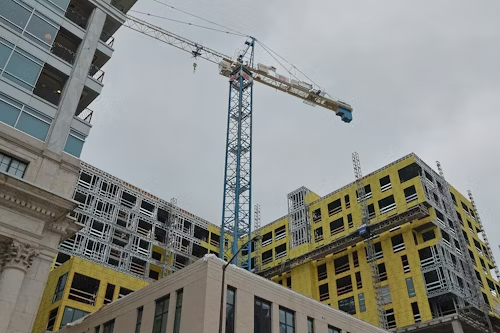
SACRAMENTO — A major political breakthrough has given new momentum to Senate Bill 79, legislation that would allow denser housing construction near major transit hubs across California. The bill, authored by Sen. Scott Wiener (D-San Francisco), secured a last-minute agreement with one of its fiercest opponents: the State Building and Construction Trades Council, which represents thousands of union construction workers.

Under the deal, the powerful labor group agreed to lift its opposition to SB 79 in exchange for amendments requiring some qualifying projects to hire union workers. The compromise removes one of the largest obstacles to Wiener’s long-pursued housing legislation.
“This is exactly where we should be building more housing, right by our highest quality transit,” Wiener said, emphasizing the state’s urgent need to align housing growth with public transportation investments.
If passed, SB 79 would mark one of the most sweeping state-led housing densification efforts in decades. The proposal allows developers to build up to six stories of housing on residential or commercial land located within a half-mile of heavily used bus stops, train stations, and subway lines — even in neighborhoods currently zoned for single-family homes.
The bill cleared the Senate earlier this year by a narrow margin, facing resistance from lawmakers who argued it lacked strong affordability requirements. Now, it awaits a final Assembly vote before returning to the Senate for concurrence. Lawmakers must act before the end-of-session deadline on Friday. If signed by Gov. Gavin Newsom, SB 79 would become a landmark in statewide housing reform.
The labor deal, announced jointly by Wiener, California YIMBY founder Brian Hanlon, and Trades Council president Chris Hannan, reflects a political truce in one of Sacramento’s most persistent battles: housing advocates versus organized labor.
“The labor standards in the amendments negotiated by the State Building Trades will create good jobs, provide training for the next generation of California’s skilled construction workforce, and ensure that this desperately needed housing is built with quality and that workers are treated with dignity,” Hannan said.
Don't miss CO Summit Santa Clara – limited seats available for this premier West Coast construction leadership event. | Book your booth
The amendments specify that:
“My hope is that this can be the beginning of shifting the dynamic where we’re all locking arms,” Wiener said. “We all want more housing. We all want more construction workers to be part of the middle class and not in poverty.”

For years, the Trades Council has been among the most formidable opponents of bills easing restrictions on housing development, typically demanding across-the-board labor standards in exchange for support. Their decision to accept narrower requirements on SB 79 represents a notable departure from that all-or-nothing stance.
“You hear from legislators all the time trying to be on the same side as the housing folks and the same side of labor — they don’t like when those sides are split,” said Louis Mirante, a lobbyist with the Bay Area Council, which is backing the bill. “The trades removing their opposition is always helpful when you’re trying to pass a housing bill. That’s pretty cut and dry.”
Hanlon of California YIMBY noted that the direct collaboration between pro-housing activists and labor leaders could reshape the way future housing bills are negotiated. “Chris (Hannan) and I really have been spending a lot of time on this bill to the point where, quite frankly, some members of my coalition thought I was chasing at windmills,” Hanlon said. “This bill here represents not just a deal on the specific language of SB 79, but it’s also a commitment from me and Chris to work together in the coming years to pass legislation to create more homebuilding opportunities in California.”
Backed by YIMBY activists, transit advocates, and business groups, but still opposed by neighborhood preservationists and local governments including Los Angeles, SB 79 is expected to face intense debate in its final votes.
If successful, it would not only expand California’s housing supply near transit but also mark a rare alignment between labor unions and housing advocates — two groups often at odds over development policy.
Originally reported by Ben Christopher in Sanjose Insider.